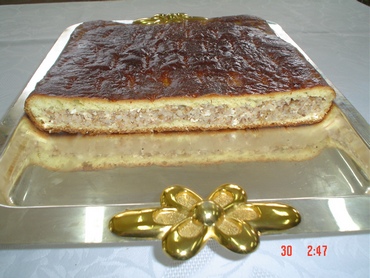Genealogy /
JARENTOWSKI [17]
It lists birth place as Germany??
Well, that could be Prussia or Russia, as in the year 1867 there was no Poland; after 1795 Poland was totally partitioned between Prussia, Russia and Austria. At certain times parts of the country existed under various adornments, such as Duchy of Warsaw (1807-1815), Congress Poland(1815-1867) or Grand Duchy of Posen (1815-1848). The last two have been finally swallowed again by Russia and Prussia, respectively.
I came across several records of marriages of Jarentowski grooms from the years predating 1867. They are:
1. Jarentowski Marcin married Anotonina Matuszak in Kościelec Kaliski, Kalisz County, in 1860.
This record came from "Index of Polish marriages until 1899", database "przodkowie", przodkowie.com/metryki/en.php.
Two other groom records, of brothers Wojciech and Antoni Jarentowski, came from "Poznan Project", poznan-project.psnc.pl/search.php.
2. Catholic Parish Kosmów, 1864
Wojciech Jarentowski (25), father £ukasz, mother Anna Szymczak
Józefa Dolacińska (16), father Jan, mother Julianna Gzymska
3. Catholic Parish Kościelec Kalisz 1862
Antoni Jarentowski (27), father £ukasz, mother Anna Szymczak
£ucja Kołodziej (20), father Wawrzyn, mother Elżbieta Kretkowska
The three marriage records could point to possible fathers of Franciszek (Frank) Jarentowski. The original records of these marriages are held in the National Archive in Poznań, Poland. You can write for their photocopies or digital copies to the address provided below. Further genealogical research is also offered there.
Archiwum Panstwowe w Poznaniu
Ul. 23 Lutego 41/43
60-967 Poznan
POLAND
WWW: poznan.ap.gov.pl
E-mail: archiwum@poznan.ap.gov.pl
That could be a beginning of your trail to follow. The first task would be to check if any of the three couples had a child named Frank, born in 1867 (or so).
All three records mention the same two parishes: Kościelec Kaliski (there are many villages Kościelec in Poland, so you have to be specific which one) and Kosmów. The villages are seven kilometers apart, although they belong to different administrative municipalities:
A. Kościelec, gmina Mycielec, Kalisz County, Wielkopolskie Voivodship (Greater Poland), 17 km north of Kalisz
A wooden XII century church, highlander style,
pl.wikipedia.org/wiki/Ko%C5%9Bcielec_(powiat_kaliski)
B. Kosmów, gmina Ceków-Kolonia, Kalisz County, Wielkopolskie Voivodship, 17 km north of Kalisz
A church from 1691,
pl.wikipedia.org/wiki/Kosm%C3%B3w_(wojew%C3%B3dztwo_wielkopolskie)
Both are located in the same county: Kalisz. Do you remember my previous post about Jarantów? Well Kosmów lies 22 km away, Kościelec 15 km away from Jarantów, a possible cradle of Jarentowski family.
All four places: Kalisz, Jarantów, Kościelec and Kosmów are located on the right bank of PROSNA river, which was a border river between Prussia and Russia. So formally the marriages took place in Russia. However, there is no reason why some of them could not take a residence in Prussia later on. This could explain the birth place "Germany" in Frank Jarentowski record.
This is all speculation of course :-)
^^
More data comes from Geneteka database: geneteka.genealodzy.pl/index.php?rid=A&from_date=1800&to_date=1899&search_lastname=Jarentowski&exac=1&rpp2=5&rpp1=0&bdm=D&url1=&w=15wp&op=gt
Four Jarentowski boys were born between 1850 and 1874 in the same parishes as above: Kosmów and Kościelec. No Franciszek among them though.
